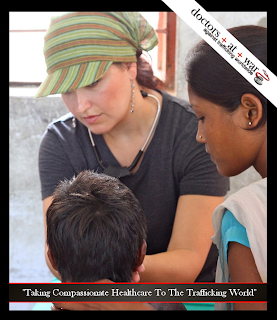You have the opportunity to use your voice by contacting your senator today and asking them to co-sponsor the TVPRA and ask that it be brought to the floor for a vote by the full Senate.
In 2000, a remarkable thing happened on Capitol Hill: the United States championed the cause of freedom by passing the Trafficking Victims Protection Act, its first legislature focused on stopping modern-day slavery and human trafficking. The TVPA finally gave governmental teeth to this fight for justice: it established the State Department Office to Monitor and Combat Trafficking in Persons, officially made trafficking a federal crime, and authorized the annual Trafficking in Persons Report, which ranks countries on their efforts to combat trafficking and gives the President power to impose sanctions on countries in order to motivate them to start meeting the minimum requirements. The TVPA revolves around a 3P approach to fighting trafficking: prevention, protection, and prosecution. It is equally concerned with awareness-raising, prosecution of traffickers, limiting the amount of goods made by slave labor, and giving restitution and assistance (including visas) to victims. This critical law stands as a global standard for efforts to combat slavery and human trafficking, and it should be a model for other countries to implement and improve on.
But there is a problem: on October 1, 2011, the TVPA expired. Congress has to reauthorize the law every three years in order to reevaluate and strengthen anti- trafficking techniques, following the changing situations; but Congress has let the law expire. If it is not renewed before Congress goes out of session at the end of the year, the programs and legislature that fight trafficking could be jeopardized, and the United States’ actions to stand up for human rights and liberty around the world will be in danger.
The Trafficking Victims Protection Reauthorization Act (TVPRA) is the bill that will renew the TVPA, and it has already been introduced in both the Senate and the House of Representatives. In order to get the collaboration, political will, and bipartisan support that this bill needs, constituents - you and I - need to let our voices be heard.
On September 4th, organizations and individuals around the United States will be joining together to for a National Call-In Day. We need to make the ears of Congress members ring with the resounding noise of our support for the TVPRA and the end of human trafficking. If you want to be a part of making history and have a real voice in this fight, then join with the Alliance to End Slavery and Trafficking and let your opinion be known on September 4th: we want the TVPRA (S 1301) to be passed now!
Take one of these two simple steps today:
Call the U.S. Capitol Switchboard 1-888-427-0530 to be connected to your Senator today!
Visit IJM to commit to call today, September 4th; IJM will provide a sample script, your Senator’s phone number, and a reminder e-mail so that you can take hold of this easy and important opportunity to take action.
In 2000, a remarkable thing happened on Capitol Hill: the United States championed the cause of freedom by passing the Trafficking Victims Protection Act, its first legislature focused on stopping modern-day slavery and human trafficking. The TVPA finally gave governmental teeth to this fight for justice: it established the State Department Office to Monitor and Combat Trafficking in Persons, officially made trafficking a federal crime, and authorized the annual Trafficking in Persons Report, which ranks countries on their efforts to combat trafficking and gives the President power to impose sanctions on countries in order to motivate them to start meeting the minimum requirements. The TVPA revolves around a 3P approach to fighting trafficking: prevention, protection, and prosecution. It is equally concerned with awareness-raising, prosecution of traffickers, limiting the amount of goods made by slave labor, and giving restitution and assistance (including visas) to victims. This critical law stands as a global standard for efforts to combat slavery and human trafficking, and it should be a model for other countries to implement and improve on.
But there is a problem: on October 1, 2011, the TVPA expired. Congress has to reauthorize the law every three years in order to reevaluate and strengthen anti- trafficking techniques, following the changing situations; but Congress has let the law expire. If it is not renewed before Congress goes out of session at the end of the year, the programs and legislature that fight trafficking could be jeopardized, and the United States’ actions to stand up for human rights and liberty around the world will be in danger.
The Trafficking Victims Protection Reauthorization Act (TVPRA) is the bill that will renew the TVPA, and it has already been introduced in both the Senate and the House of Representatives. In order to get the collaboration, political will, and bipartisan support that this bill needs, constituents - you and I - need to let our voices be heard.
On September 4th, organizations and individuals around the United States will be joining together to for a National Call-In Day. We need to make the ears of Congress members ring with the resounding noise of our support for the TVPRA and the end of human trafficking. If you want to be a part of making history and have a real voice in this fight, then join with the Alliance to End Slavery and Trafficking and let your opinion be known on September 4th: we want the TVPRA (S 1301) to be passed now!
Take one of these two simple steps today:
Call the U.S. Capitol Switchboard 1-888-427-0530 to be connected to your Senator today!
Visit IJM to commit to call today, September 4th; IJM will provide a sample script, your Senator’s phone number, and a reminder e-mail so that you can take hold of this easy and important opportunity to take action.












